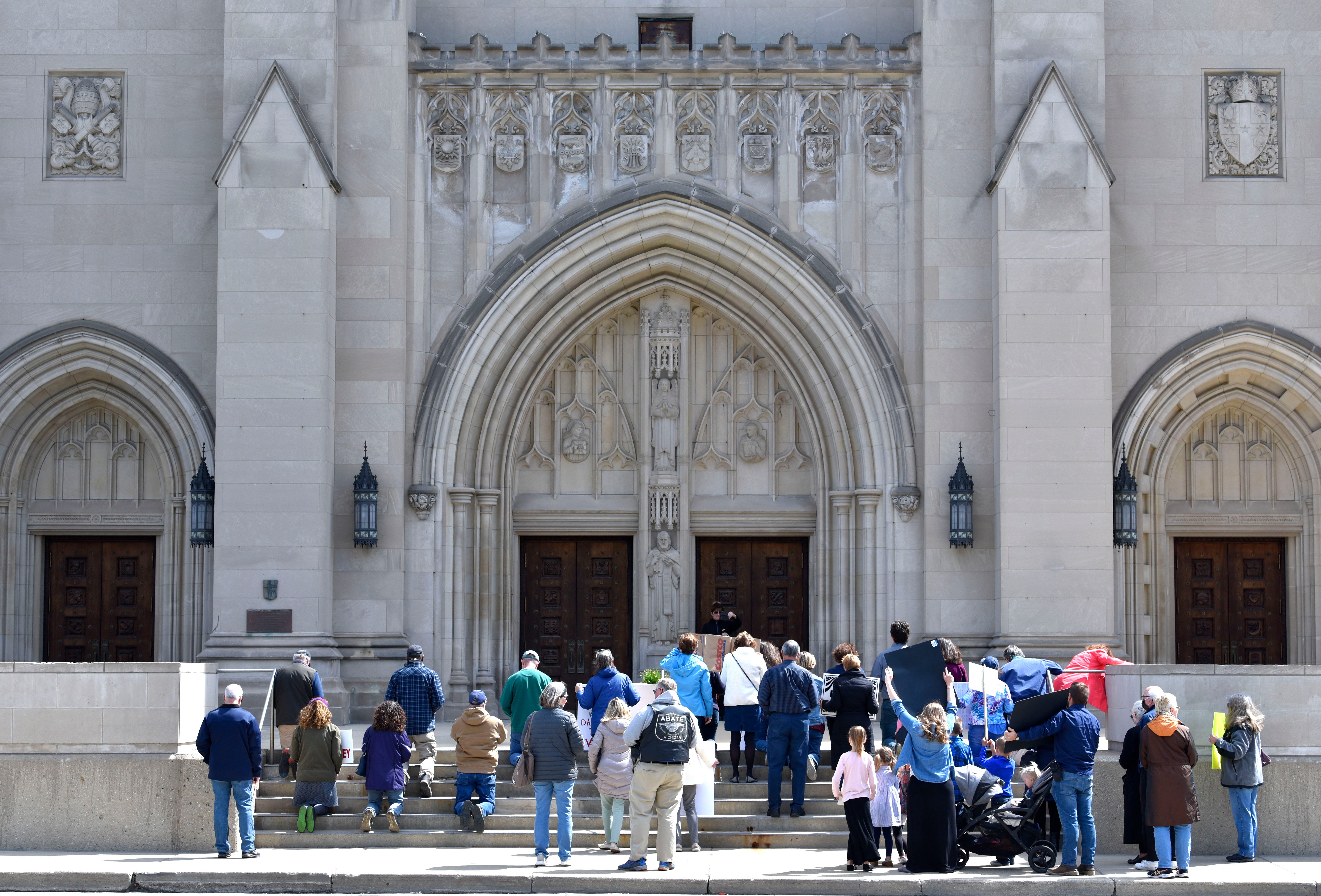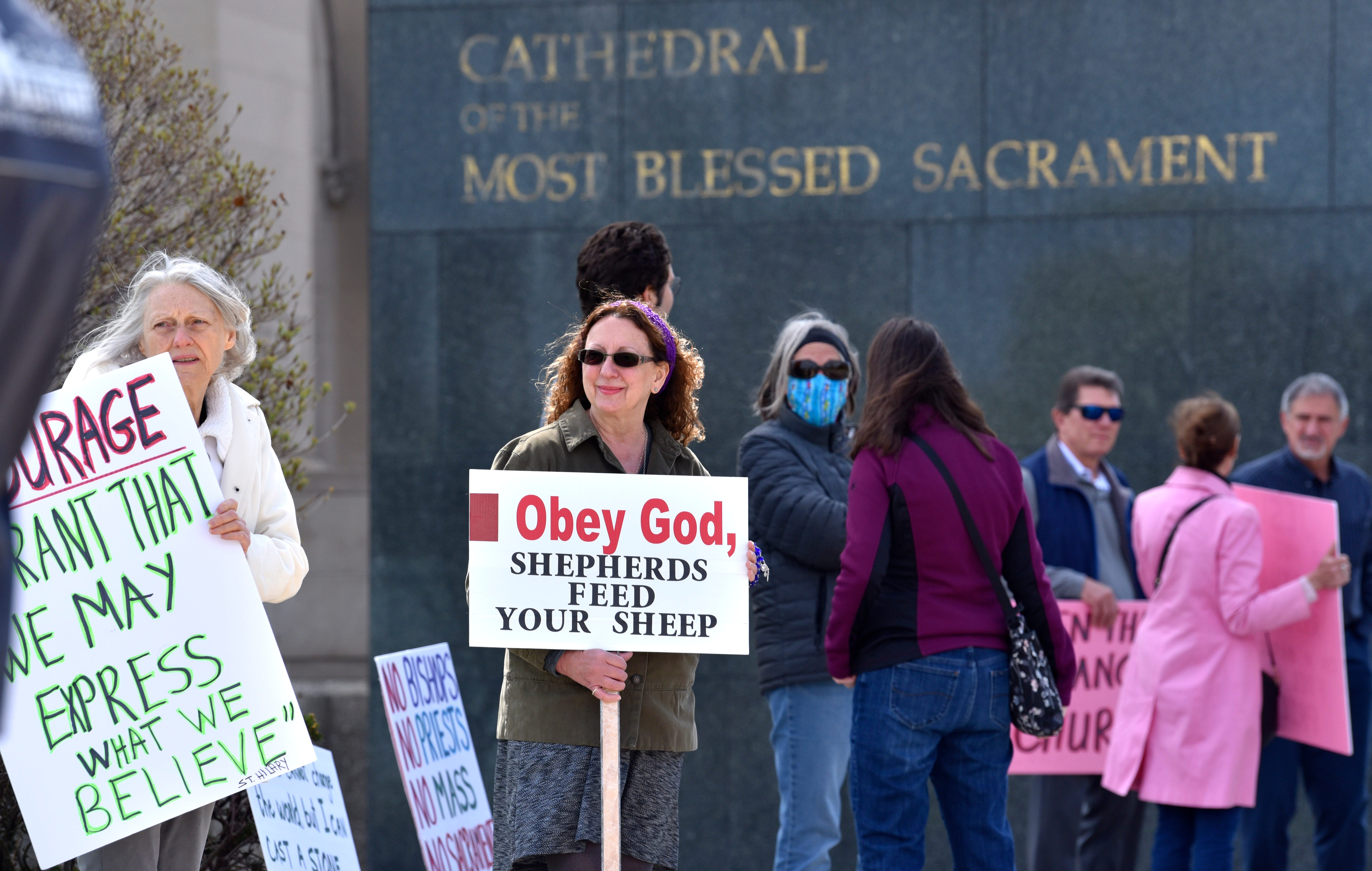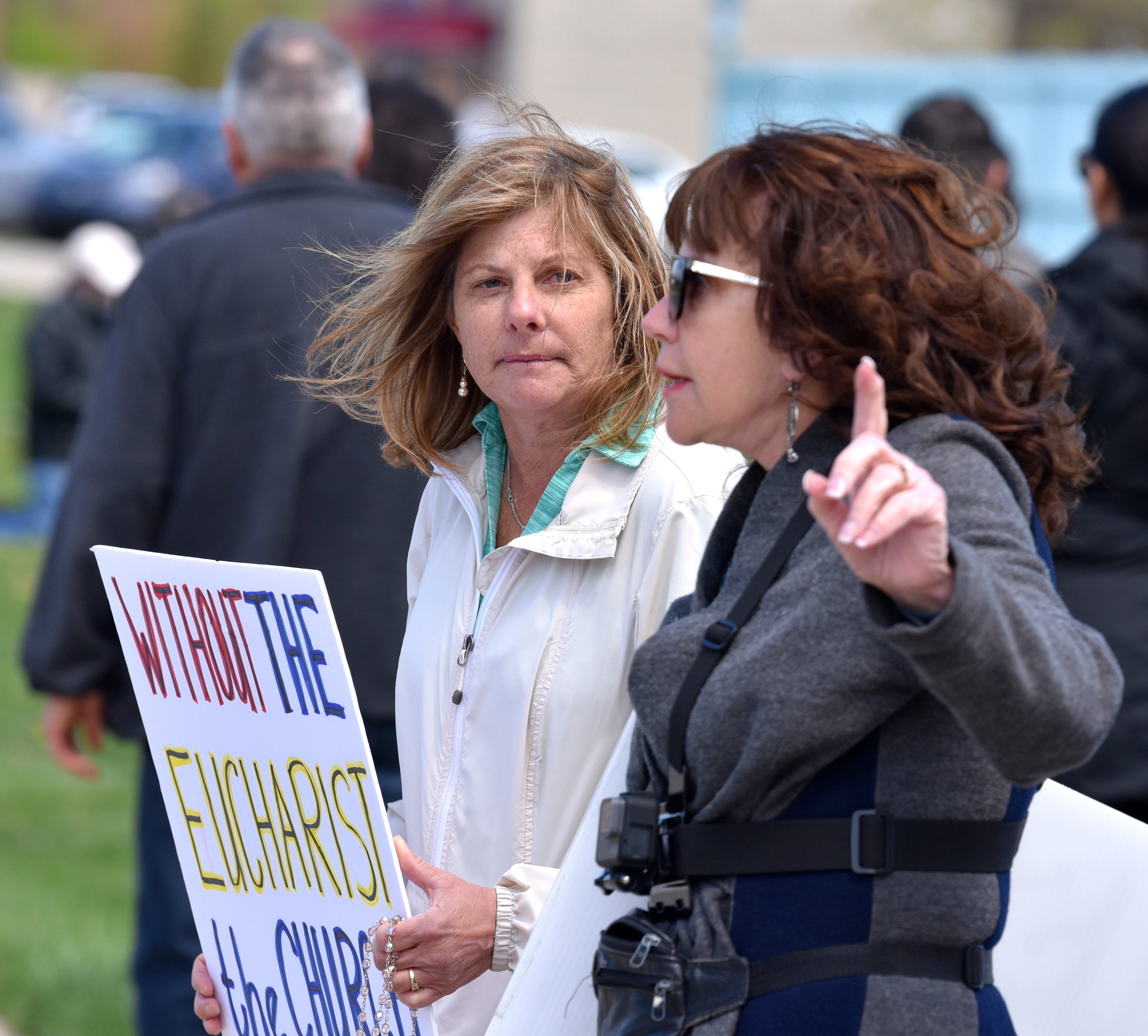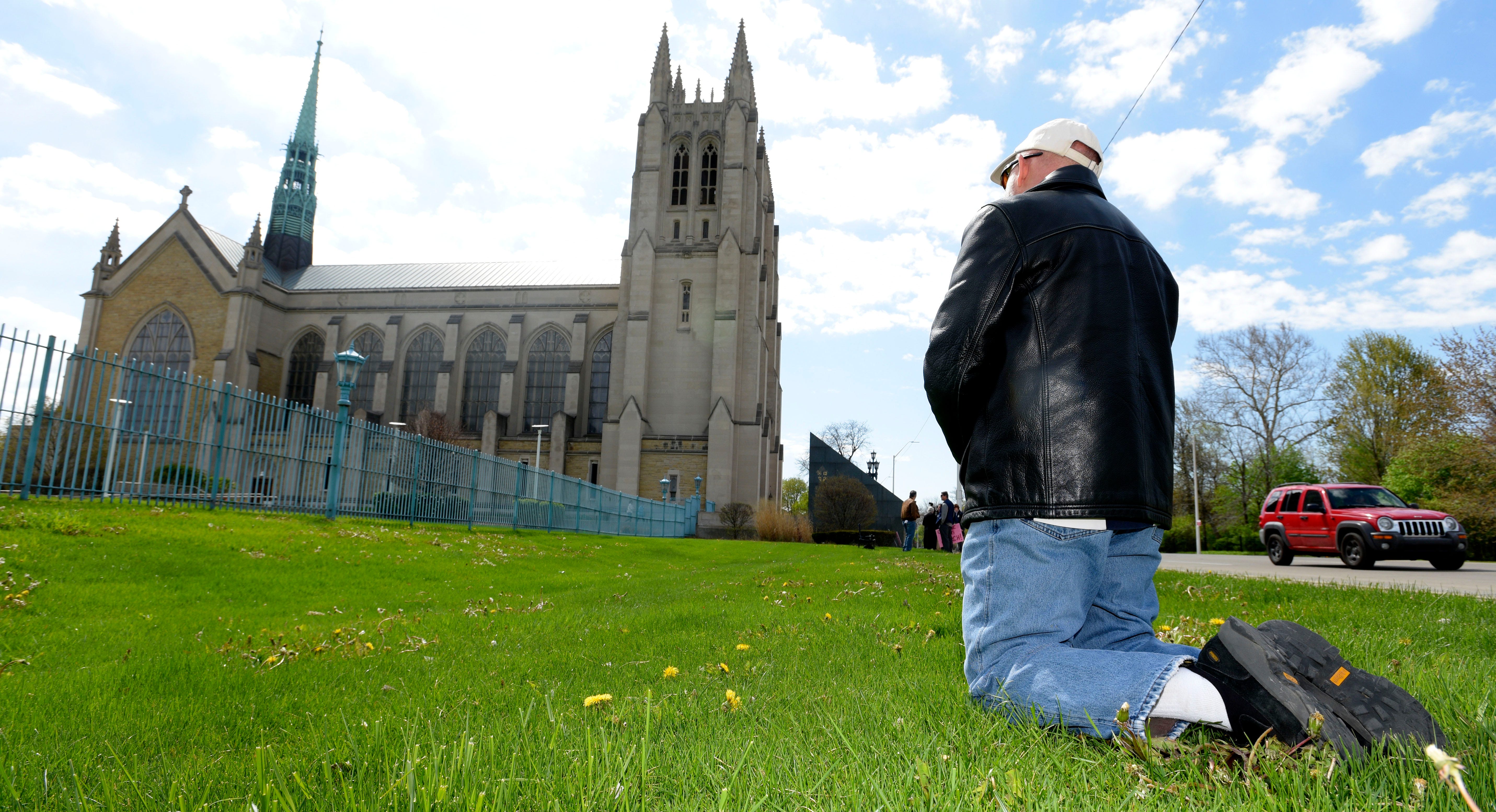Protesters to Detroit Archdiocese: Reopen churches for Mass

Detroit — Patricia Stephanoff says she doesn't understand why she can go to the grocery store to buy potato chips, but isn't allowed during the COVID-19 emergency to attend church to receive Holy Communion.
"We want to nudge the (Archdiocese of Detroit) into opening up our churches for Holy Masses and Sacraments," said Stephanoff of Livonia, who helped organize a protest Thursday outside the Cathedral of the Most Blessed Sacrament parish in Detroit.
"We can go to Kroger to get food for our bodies; why can't we go to church and feed our souls? That makes no sense," said Stephanoff, who was one of about 50 people who protested outside the church and rectory on Woodward Avenue near Chicago Boulevard where Archbishop Allen Vigneron resides.
A spokeswoman for the Archdiocese of Detroit said she understands the parishioners' concerns but churches won't be opened until health officials say it's safe to do so.
Michigan Gov. Gretchen Whitmer's executive orders, meant to stop the virus's spread, include a ban on gatherings of more than 50 people, although the governor amended her original edict by excluding churches from being penalized for violations.
However, Whitmer's revision does not indemnify individuals who attend church from being penalized, religious leaders argued in a lawsuit filed Wednesday in federal court.
Whitmer's exemption “merely adorns the Constitution with a fig leaf and does not protect individuals or change the clear language of the order prohibiting any religious services,” the lawsuit said.
Jim Stephanoff, Patricia's husband, agrees his constitutional rights are being violated because he can't attend Mass.

"There's a reason the First Amendment is the first one they put in the Constitution," he said during Thursday's protest in Detroit. "They can't just suspend that because there's a pandemic."
Religious worshipers across the nation have expressed similar frustration at state-imposed shelter-in-place rules that bar large gatherings, including at churches. Lawsuits similar to the one filed in Michigan this week have argued the orders violate citizens' constitutional rights, with varying outcomes.
On Tuesday, a California federal district judge upheld the state's ban on church gatherings, ruling the order is constitutional during a pandemic, while on Monday, the Justice Department filed a statement of interest siding with a Virginia church that sued the state over the restrictions.
During the coronavirus outbreak, churches have made "virtual" services available to be watched online — but Patricia Stephanoff and other protesters insisted that's not church.
"Jesus is not virtual reality," Stephanoff said. "He came to us in the flesh. We can't have a Mass on a computer screen; we are a communal church, and that means we have to physically get together. We can do that safely."
Restrictions are slowly being lifted. The Lansing Diocese last week announced its parishes would reopen May 18, with guidelines that are to be announced.
Archdiocese spokeswoman Holly Fournier said she sympathizes with the protesters who gathered Thursday on Woodward.
"We share their desire to safely attend Mass and receive Communion," she said. "We are grateful to God that it is once again becoming a possibility in a few other dioceses less impacted by coronavirus.
"While we do not yet have a firm date when it will be safe to resume public Masses here, we continue to monitor the incidence of coronavirus within the Archdiocese of Detroit and are following the lead of local health officials," Fournier said.

Lynn Mills, a Livonia resident who helped organize Thursday's protest, said religious leaders shouldn't rely on elected officials to make decisions.
"Don't take your orders from Gretchen Whitmer — you take orders from God," Mills said. "Separation of church and state isn't meant to squash the church; it's meant to protect it from the state."
Patricia Stephanoff agreed. "The church is not a client of the state," she said. "The state is not part of the church's decision-making. We can return to Mass safely. That's not up to the state to decide."

Fournier said the Detroit archdiocese will follow the direction of state health officials.
"We are simply unable to resume public gatherings until health officials agree that it is safe to do so," she said. "We will resume public Masses, and other parish events, when we are confident that doing so will not pose undue risk to the health and well-being of everyone in our community."
Thursday's protesters, some holding rosary beads, knelt on the church's front steps, sang hymns, and recited the Our Father and Hail Mary prayers. Members of the group marched up and down Woodward carrying signs with the messages, "Bishop do the right thing," and "Without the Eucharist, the church does not exist."
"This whole thing just makes me sad and frustrated," said Chere Bernhard of Livonia, who said she became a Catholic 20 years ago. "I just want to be able to come to church to worship the Lord, my Savior. That's what this is about — nothing else."
ghunter@detroitnews.com
(313) 222-2134
Twitter: @GeorgeHunter_DN